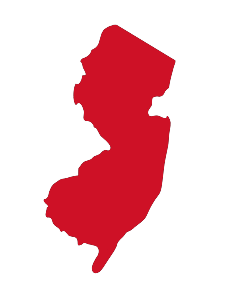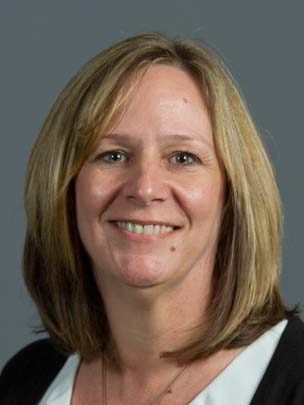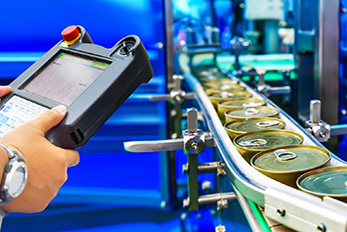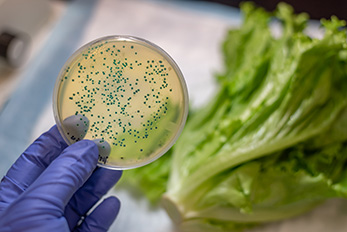Main Content
Discover the basic concepts of HACCP and how to develop a HACCP plan that can help your facility avoid the cost and liability associated with contaminated food products.

Jump to: Register | Course Details | Overview | Instructor | Reviews | CE Credits | Policies | Contact Us | Related Courses | Join Email List
Register Now
Pay with Credit Card:
Pay with Check, PO, or Money Order:
Course Details
Course Name: HACCP Plan Development for Food Processors
Course Code: LF0403WA26
Date: May 18-20, 2026
Time for Days 1 & 2: 8:30 am – 5:00 pm EDT (Log-in time: 8:15 am EDT)
Time for Day 3: 8:30 am – 12:30 pm EDT (Log-in time: 8:15 am EDT)
Location: Online
Format: Live, instructor-led virtual course
Registration Fee: $749 per person
Early Bird Discount Fee: $649 per person (expires May 10, 2026)
Registration closes: May 15, 2026
Paying with a check, money order, or purchase order?
Payments should be made out to: Rutgers, The State University of New Jersey
Checks and money orders should be mailed to: Office of Continuing Professional Education, Attn: Registration Dept., 102 Ryders Ln, New Brunswick, NJ 08901-8519
Purchase Orders can be mailed to the address above or electronically sent to registration@njaes.rutgers.edu.
Course Overview
 This is an International HACCP Alliance approved training course.
This is an International HACCP Alliance approved training course.
This two and a half day online workshop will take you through the steps for writing and implementing an intelligent and effective HACCP (Hazard Analysis Critical Control Point) plan. Because you learn HACCP planning best by doing it, you will actually write a sample plan in class! Working in small groups, you’ll complete hands-on exercises covering how to:
- Conduct a hazard analysis of your food process, including proper flow charting.
- Determine the critical control points (CCPs) and understand the difference between a control point and a critical control point.
- Establish critical limits for each control point.
- Establish monitoring procedures and corrective actions.
- Establish verification procedures to ensure your HACCP system is working and validation procedures to ensure your food products are safe.
- Establish recordkeeping and documentation procedures.
Plus, you will review examples of real HACCP plans and learn about common reasons why HACCP plans fail, so you can make sure your plan succeeds. HACCP plan implementation procedures, as well as problems you may face when implementing a HACCP plan and potential solutions for those issues, will also be covered.
Please Note: This is a general HACCP course. It covers the requirements for Meat and Poultry or Voluntary HACCP for FDA products OTHER THAN Juice or Seafood. It does NOT meet the requirements for Seafood HACCP or Juice HACCP.
HACCP Plan Development Course Format
Mellonie O’Neill, a trained Lead Instructor with the International HACCP Alliance (IHA), will guide you through every step of the HACCP plan development process so you don’t get overwhelmed. In addition to lectures, this course will feature many opportunities for interaction and participation through group exercises, presentations, and discussions. Participants who successfully complete the program (including the final exam) will receive a certificate of completion affixed with the IHA seal.
Featured Topics
This food safety training course will cover the following topics over 2.5 days of online instruction:
- Overview of Food Safety and HACCP Principles
- Prerequisites to HACCP
- Preventive Controls
- Sanitation Standard Operating Procedures
- Biological, Chemical, and Physical Hazards and Controls
- Initial Tactics
- Hazard Analysis
- Critical Control Points
- Critical Limits
- Monitoring and Corrective Actions
- HACCP Regulations
- Food Defense/Emergency Preparedness
- Verification and Recordkeeping
- Organizing and Managing HACCP Programs
- HACCP Training
Who Should Attend?
This online workshop is a valuable training opportunity for anyone responsible for the development and maintenance of HACCP plans. Members of senior management and personnel responsible for reviewing and auditing suppliers’ HACCP programs can also benefit from the content presented. Past attendees have included:
- Corporate Chefs
- Food Plant Managers and Sanitarians
- Food Production Supervisors
- Food Scientists and Food Technologists
- Food Service Supervisors
- Graduate Students
- HACCP Coordinators and Food Safety Specialists
- Public Health Professionals
- Quality Assurance/Quality Control Professionals
- Research & Development / Product Development Professionals
Learn More About HACCP and its Role in Food Safety
HACCP involves the methodical and systematic application of science and technology to plan, control, and document the safe production of foods. With the goal of preventing problems that could lead to foodborne illness or injury, HACCP consists of identifying food safety hazards and putting controls in place to prevent, eliminate, or reduce them to acceptable levels. When these hazards are effectively controlled, the risk of unsafe food products reaching consumers is minimized.
One of the underlying principles of HACCP is that food safety should be an integral part of all aspects of a food processing operation, including sourcing, handling, storage, and transport. A well-written HACCP plan addresses raw materials, ingredients, processing equipment, personnel, environmental factors, product handling, and more. In contrast to end-product testing, which identifies problems after they have already occurred, HACCP is a preventive systems that seeks to decrease the likelihood that a food product will become unsafe in the first place.
In addition to providing the framework for producing foods safely, HACCP also provides the records to prove they were produced safely through documentation and recordkeeping.
Meet Your Instructor
Mellonie O’Neill, Senior Manager— QA Compliance and Training, Rutgers Food Innovation Center

Since 2017, Mellonie has served as the Senior Manager of QA Compliance & Training at the Food Innovation Center at Rutgers. She has more than 22 years of food industry experience in dairy, plant-based “milks” (soy and almond), baked breads, and aseptic processing of flavored waters in PET (polyethylene terephthalate plastic bottling) packaging. A local resident of Bridgeton, NJ, Mellonie earned her degree in Food and Nutrition Technology from Montclair State University.
Starting her career as a lab technician for a local dairy, Mellonie worked as a Quality Assurance Supervisor, a Continuous Improvement Supervisor helping to improve and maintain compliance of Environmental Health and Safety, and eventually moved into a Corporate Quality Assurance Manager role. Mellonie then broadened her repertoire by becoming a QA Manager in a Bakery Operation and in a Flavored Water aseptic processing facility until finally joining the Food Innovation Center where she enjoys working with up-and-coming food entrepreneurs.
Mellonie holds training certificates in HACCP (Hazard Analysis & Critical Control Points), Seafood HACCP, IAVA (Intentional Adulteration Vulnerability Assessment), PCHF (Preventive Controls for Human Food), Produce Safety Growers Alliance Course, 3rd Party Auditing, and Better Process Control School. She is trained as an SQF Practitioner (Safe Quality Foods), holds a Lead Instructor certificate for PCHF and FSVP (Foreign Supplier Verification Program), is a ServSafe Instructor and Proctor, and is qualified to teach Root Cause Analysis Tools and Techniques.
Mellonie is passionate about mentoring local youth interested in working in New Jersey’s food industry and advising them on the many exciting career paths available.
Student Reviews

“This is the second time I’ve taken HAACP through Rutgers University. As the Quality Control manager at our facility, HACCP training is a must. The instructor, an expert in the industry, understands manufacturing terms and knows most of the problems we face day to day. She really knows how to speak to her audience. I would strongly recommend this HAACP class to anyone who needs to take it.”

“I learn best by doing. I want to be able to ask questions and practice the strategies. This HACCP class, with its hands-on group exercises, lets me do that and teaches you to think outside the box. If hazard analysis is part of your job, you need this training!”

“I registered to learn about HACCP. Now I know how to design a HACCP plan. [The instructor] was great – knowledgeable and experienced!”
Continuing Education Credits
The HACCP Plan Development for Food Processors course is approved for 2.1 Rutgers CEUs (21 contact hours), as well as the following credits from professional organizations.
 New Jersey
New Jersey
NJ Health Officers and Registered Environmental Health Specialists (HO/REHS): Rutgers University, NJAES, Office of Continuing Professional Education has been approved by the New Jersey Department of Health as a provider of NJ Public Health Continuing Education Contact Hours (CEs). Participants who complete this education program will be awarded 18.0 NJ Public Health Continuing Education Contact Hours (CEs).
 National
National
Certified Food Scientists: This program qualifies for Certified Food Scientist (CFS) recertification contact hours (CH). CFS Certificants may claim a maximum of 17.75 CH for their participation in this program. For more information, please visit www.ift.org/certification or email ifscc@ift.org.
Course Requirements and Policies
 Technology Requirements
Technology Requirements
This virtual course will be delivered via Canvas. After you register, you will receive an email from “Rutgers University Canvas” prompting you to click a link to finish setting up your Canvas account. If you do not see this message in your inbox, please check your junk/spam folder.
Registrants will receive more information as we move closer to the course date, including an email with a link to access the course. Please log into class 15 minutes before the start time for a brief overview of the online format. The course will start promptly at 8:30 am EDT.
Equipment you will need to access this training:
- Laptop or desktop computers with webcam are required for this class.
- Speakers and microphone are not necessary as a call in option is available.
 Email Requirement
Email Requirement
A unique email address is required for each registrant to register and access our courses.
- If this is your first time registering with us, please provide your own unique email address when registering; do not provide an email address that you share with co-workers.
- If you have previously taken classes with us and have used an email address that you share with your co-workers or supervisor, your account must be updated with a unique email address. To do this, please send an email to us at registration@njaes.rutgers.edu stating that your email address needs to be changed and include:
- Your full name
- The shared email address that needs to be changed
- Your unique email address
- A phone number where you can be reached if we have any questions
 Photo ID Requirement
Photo ID Requirement
Each registrant will be asked provide a photo of him/herself holding their government-issued photo ID. This is required by credit boards so that you may receive credits for participating in this online course.
- You will receive a reminder email prior to the start of the class with further instructions. Wait to receive these instructions before you attempt to upload your ID.
- The photo must be clear enough that we can read your name and verify that the person pictured on the ID is in fact the person holding it.
- After an OCPE staff member reviews the picture and verifies your identity, you will have access to participate in the course when it begins.
 Cancellations and Substitutions
Cancellations and Substitutions
A $100 cancellation fee applies for this course. Substitutions are permitted. View our cancellation policy.
Program Questions? We’re Here to Help!
If you have any questions about HACCP Plan Development for Food Processors, please don’t hesitate to reach out to us.

Senior Program Coordinator: Suzanne Hills
848-932-7234
suzanne.hills@rutgers.edu




